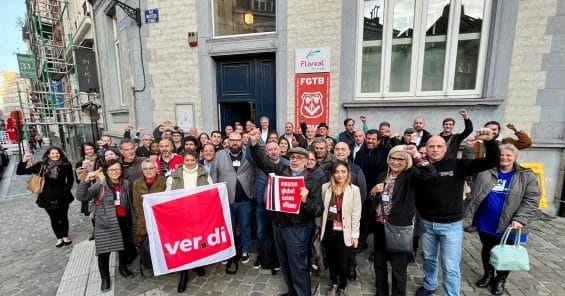NYON, Switzerland, and LONDON—With the spotlight of the COVID-19 pandemic illuminating and exacerbating many long-standing issues in the nursing home sector, a coalition of 95 investors with US$3.34 trillion in assets under management launched a new initiative today to drive up working conditions and quality of care in nursing homes.
The group—coordinated by UNI Global Union and including International Business of Federated Hermes, Aviva, BMO Global Asset Management, Sycomore Asset Management, along with over 70 pension funds—is reaching out to the largest public care operators and real estate owners globally with a new set of expectations for the sector.
In a joint statement which investors will be sharing with companies in the sector, including the largest companies like Orpea, Chartwell, and Sienna Senior Living, the investors say that the long-standing problems of the industry during the pandemic must be addressed through adequate staffing levels, expanded collective bargaining and union representation, improved health and safety, liveable wages, and enhanced quality of care.
“[A]s the sector recovers, and we reflect upon the damage to our societies and the loss of human life during the pandemic, we must seize this moment to ensure the industry changes for the better and develops a more humane and resilient model,” they said.
This model would put the long-term care companies in line with the UN Guiding Principles on Business and Human Rights as well as mitigate the legal, reputational, and operational risks for their investee companies in the nursing home sector.
“The pandemic has exposed how precarious many nursing homes have been for workers and residents. It has created a Rana Plaza moment in this industry and shows the need for increased public scrutiny,” said UNI General Secretary Christy Hoffman, referencing the deadly industrial disaster in Bangladesh that led to significant, binding reforms to the garment supply chain.
She continued, “By setting out these expectations together, this new coalition will play a vital role in putting social responsibility and human life—not short-term profits—at the centre of long-term care.”
Recognising the many causes of the losses of lives in nursing homes, the statement goes on to make a direct link between working conditions and the quality of resident care. Nursing home residents accounted for 41% of all COVID-19 related deaths during the pandemic, and hundreds-of-thousands-of nursing home workers have also become infected, many of whom are facing long lasting aftereffects and a large number have died.
One year into the pandemic, research by UNI finds that most care workers do not earn a liveable wage and nearly a third are without adequate access to personal protective equipment.
Long-term care companies must enhance board level oversight—including making sure directors have the expertise to effectively implement investors’ expectations. Companies in the sector should also disclose how the risks addressed by the newly set out expectations are monitored, managed, and integrated into management incentive schemes and performance


